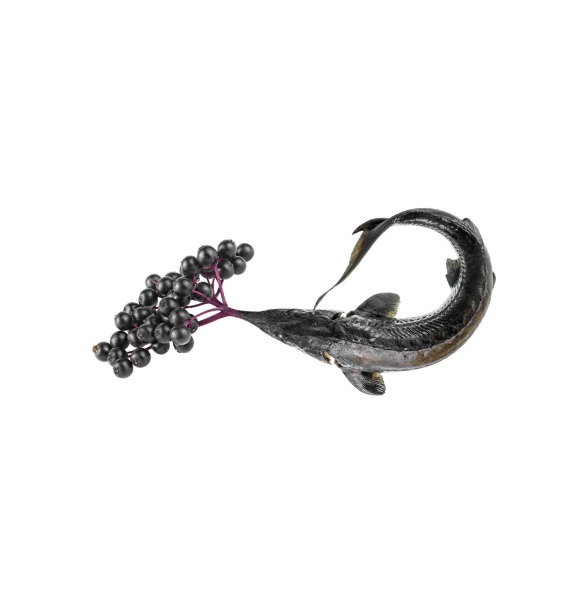News
Davide Caranchini and the potential of lake fish
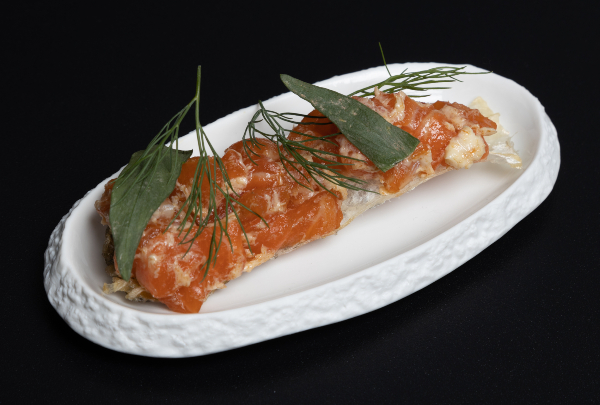
One of the representatives of a new generation of Italian chefs comes up with an antipasto with seven snacks from a lake trout, “with as much potential as sea trout”. In reference to the theme of the congress, Caranchini touches on economic solidarity, because “if we don’t pay producers well, they won’t be able to supply us”.
Trained at Noma (Copenhagen) and Enoteca Pinchiorri (Florence), Davide Caranchini runs a restaurant in the foothills of Italy’s Lake Como, where he stocks his pantry. Because Como “isn’t just George Clooney’s snobby lake; it’s also an incredible location with fine produce and fine farmers, a romantic, exciting place I try to put on the table at Materia* (Cernobbio, Italy)”, using mostly local vegetables and plants (the restaurant has its own greenhouse), and fish from the lake he uses for all sections.
To demonstrate the potential of inland fish, he carried out a sequence in the main auditorium of Madrid Fusión Alimentos de España with a trout, “by way of a mixed antipasto, but healthier”. Among other dishes, he used its dry dehydrated liver to create a mille-feuilles with a filling of pâté from the liver and fermented boletus mushrooms, and along with the meat a tartare with smoked eel butter.
He also simulated a traditional “carpione” (similar to a brine) with fried, marinated and reserved trout, and shallots; he dipped cheeks in a garum sauce made using fish from the lake, and then added fresh creme fraiche from cows in the mountains nearby; he also made a maritime ceviche; a mayonnaise with an infusion of the barbecued fish bones and local herbs –“like a smoked fish mayonnaise without the fish”-, and finished off with a dish concocted from the bread left over from each session.
“The idea is to get the very best out of the trout, and from lake fish in general, which can have the same potential as fish from the sea”, he claimed with his comprehensive antipasto. Finally, Caranchini used the PA and the theme of the congress to set out his version of sustainability, “which, first of all, must almost be economic for it to be personal. Because we can’t maintain, and there is no way of maintaining, all local producers if we don’t pay them well”.

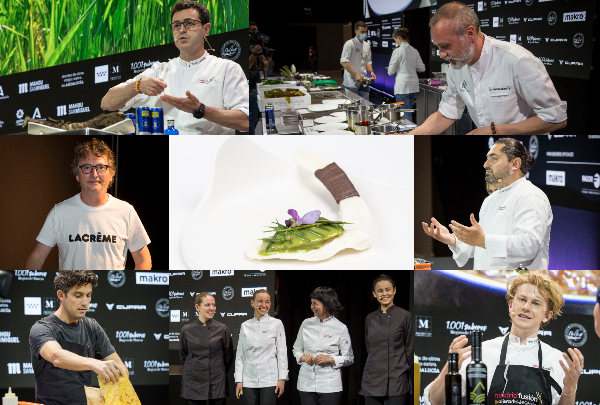
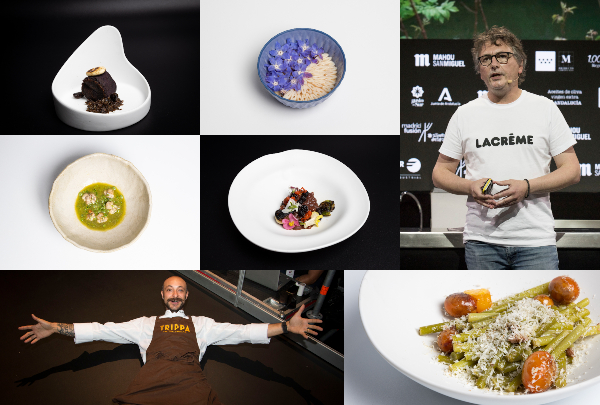
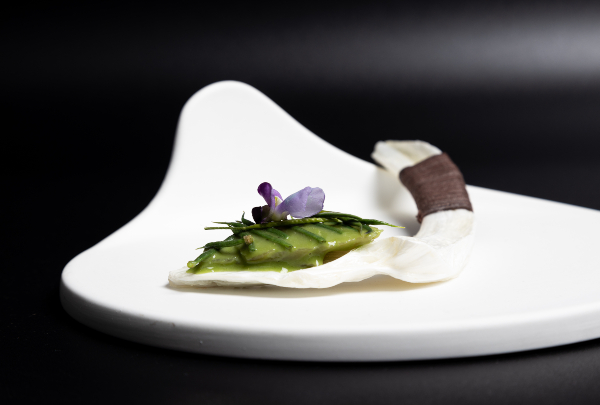
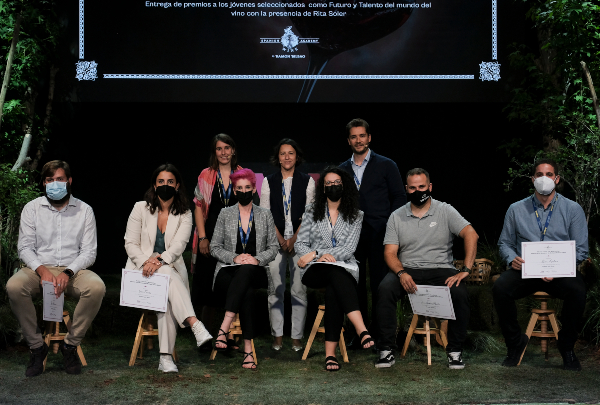
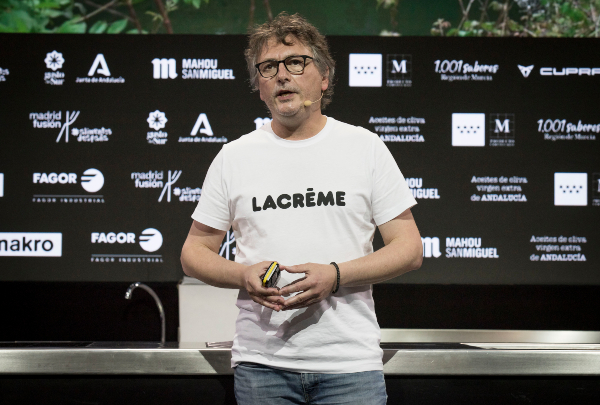
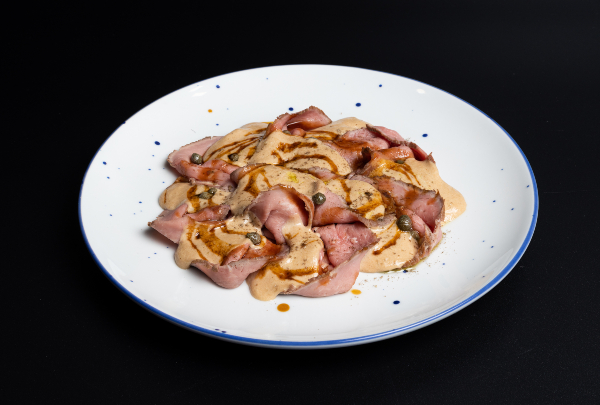
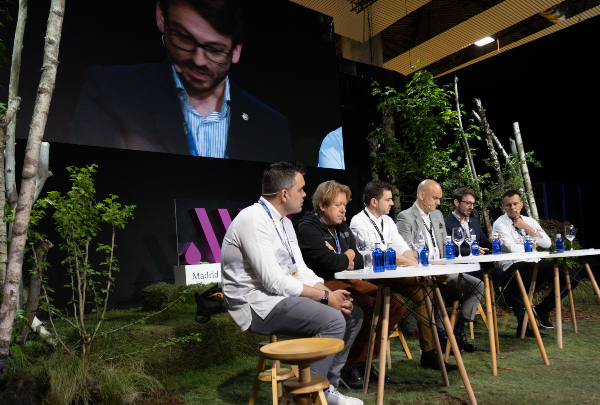
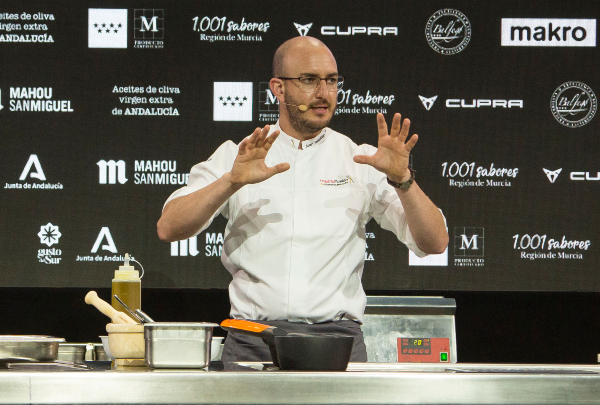
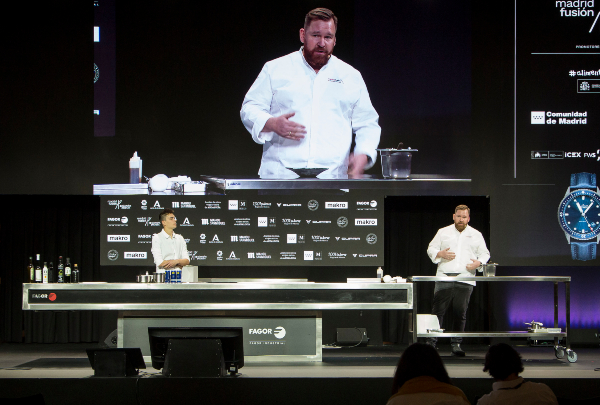
.jpg)
